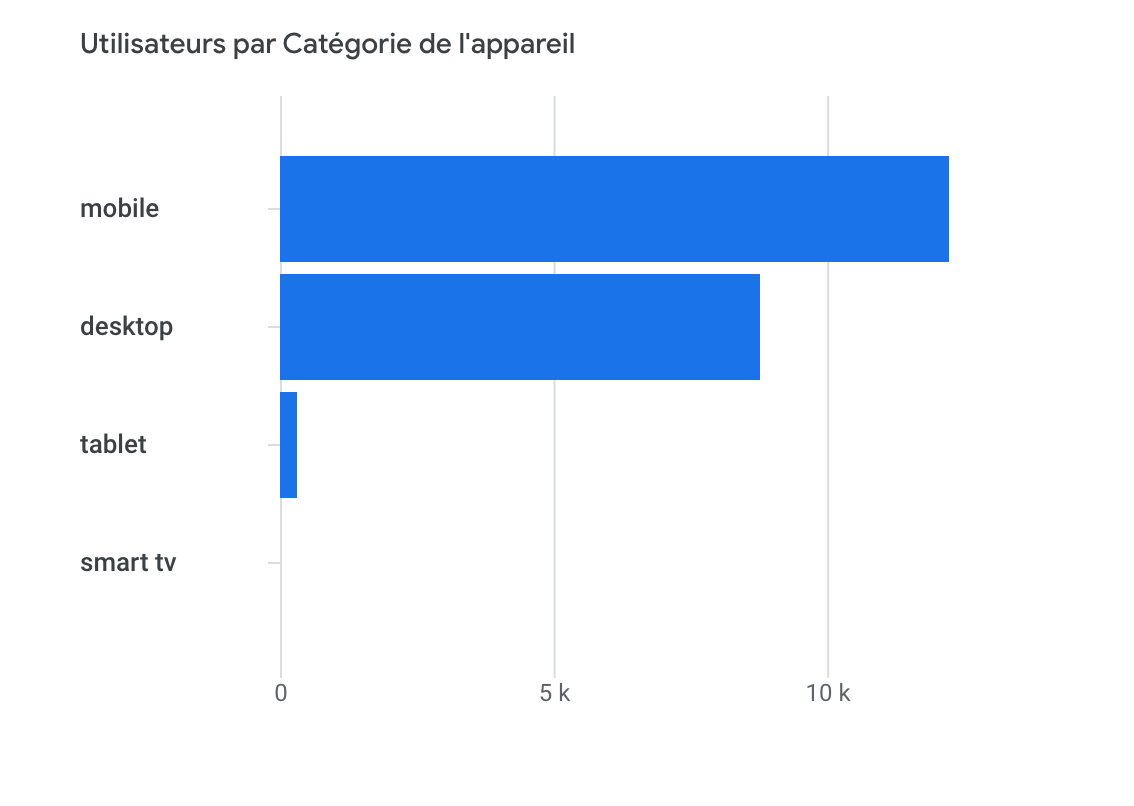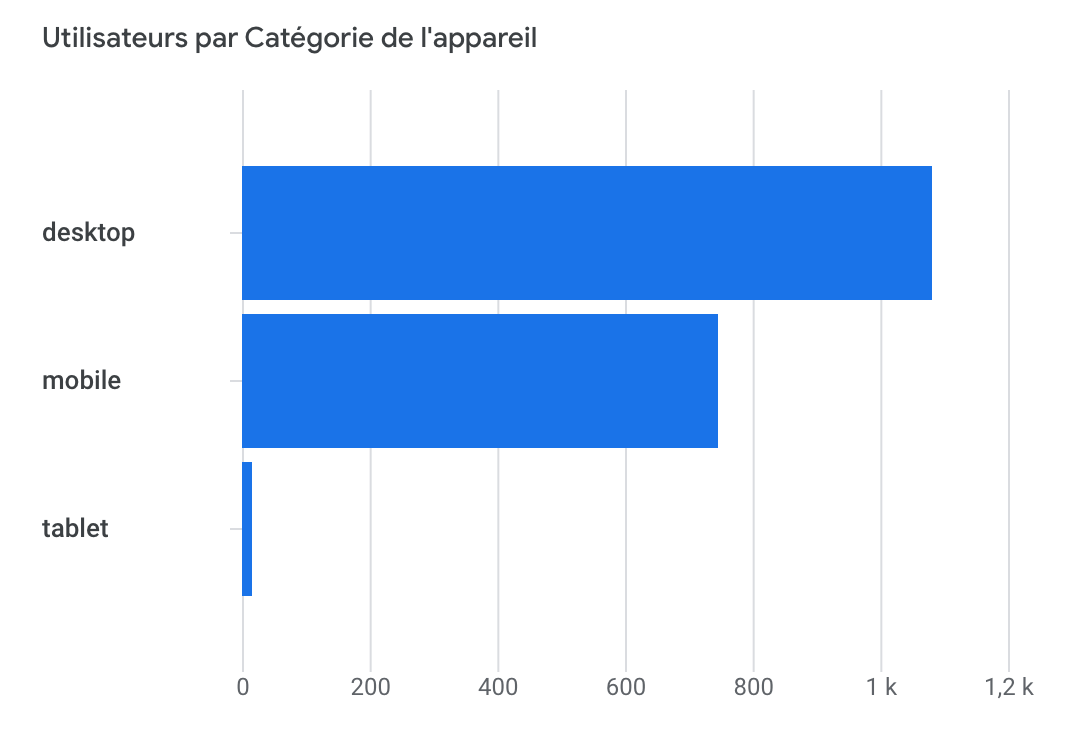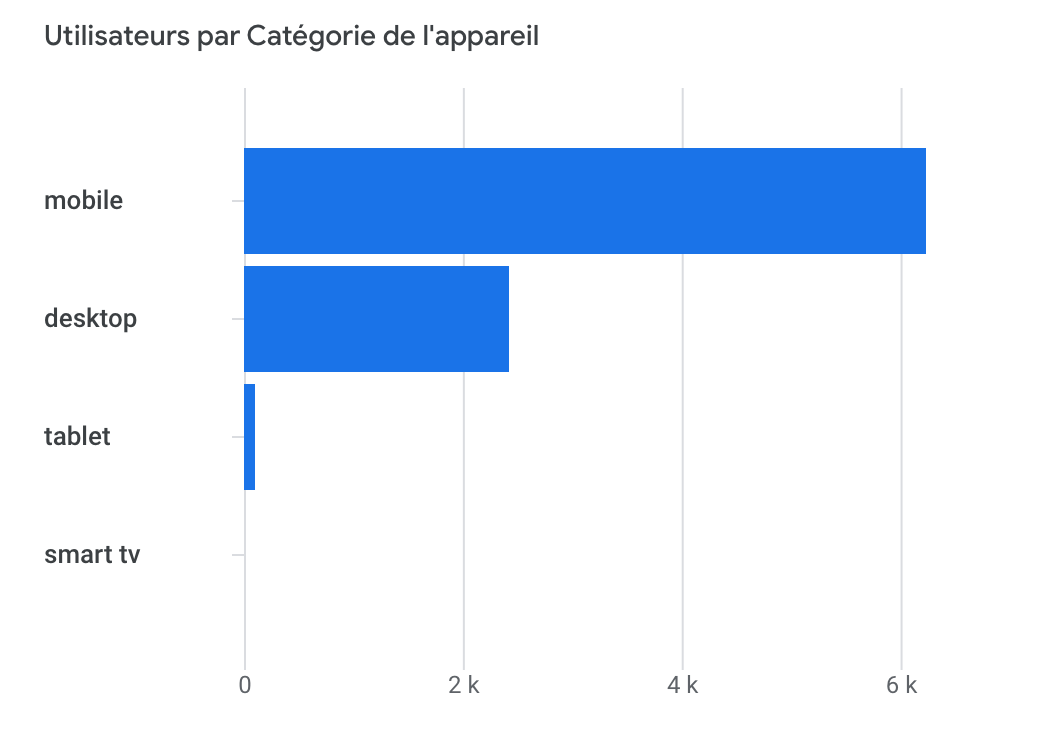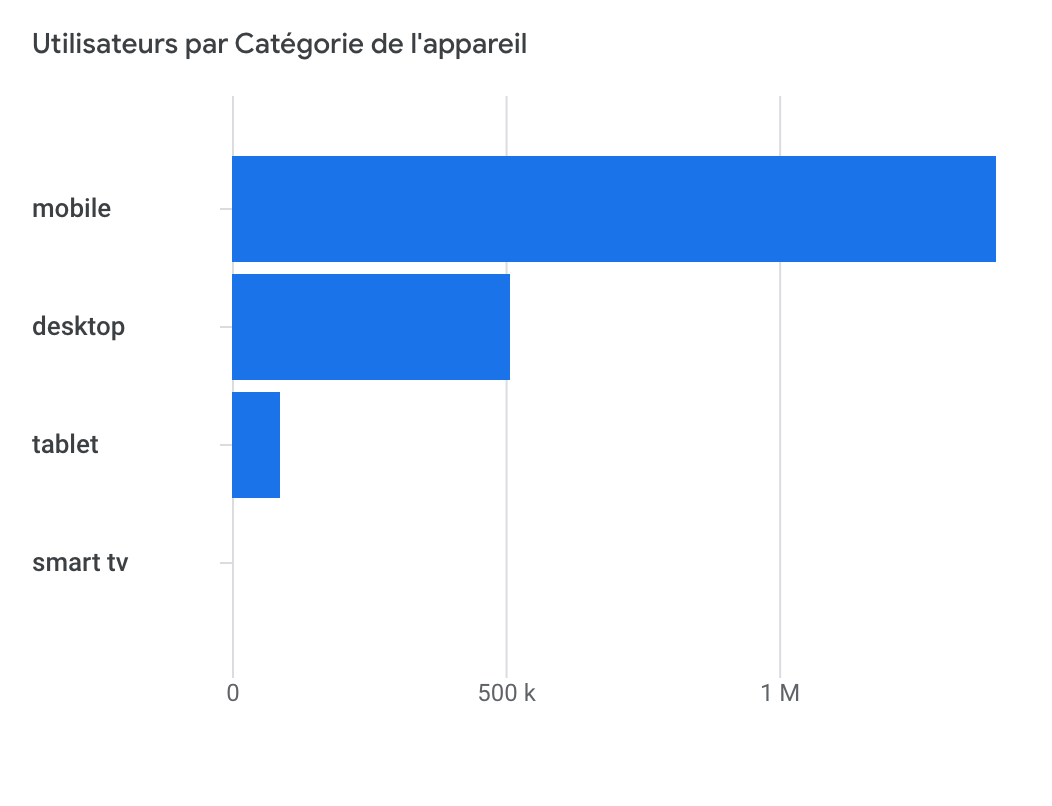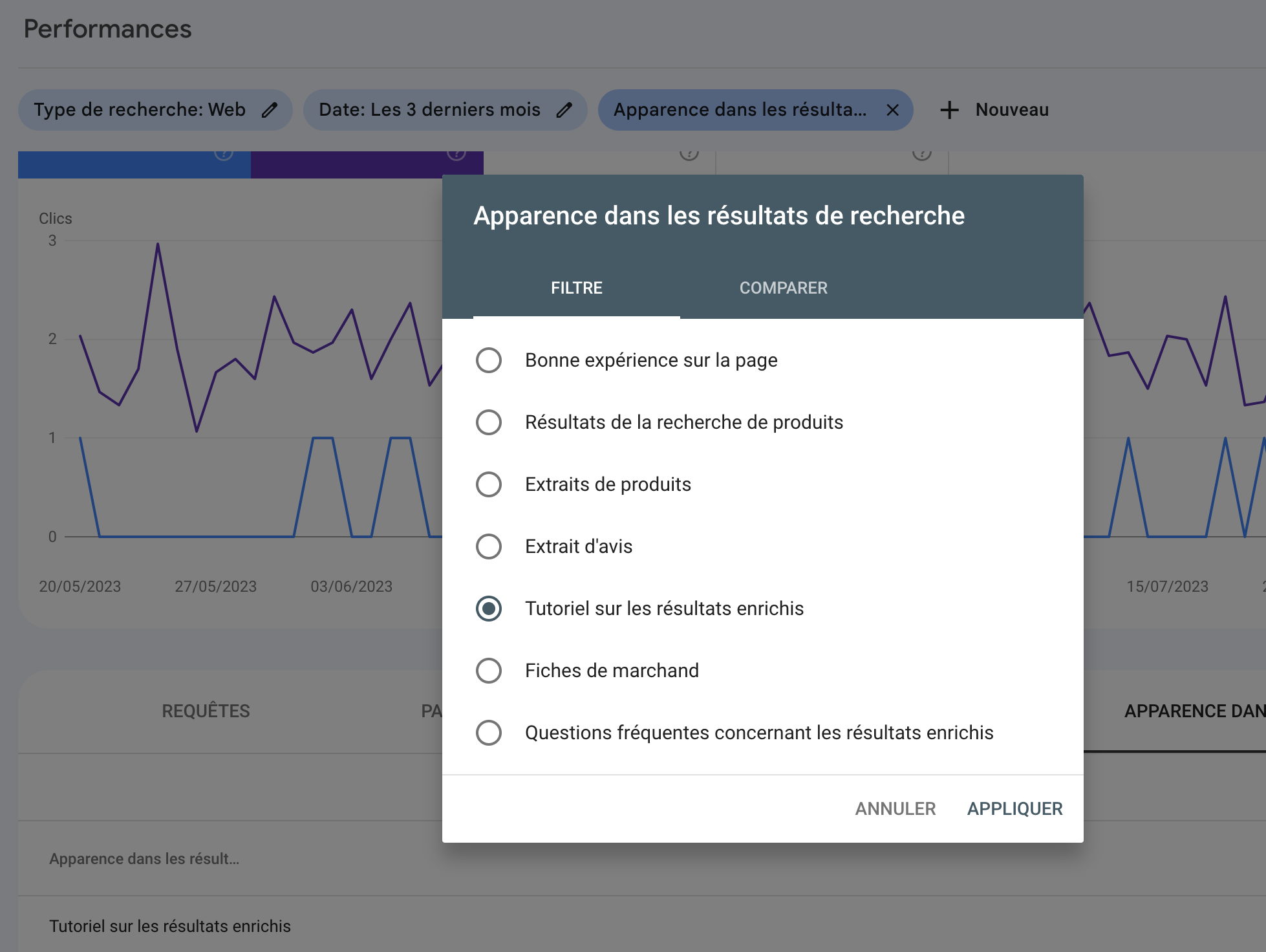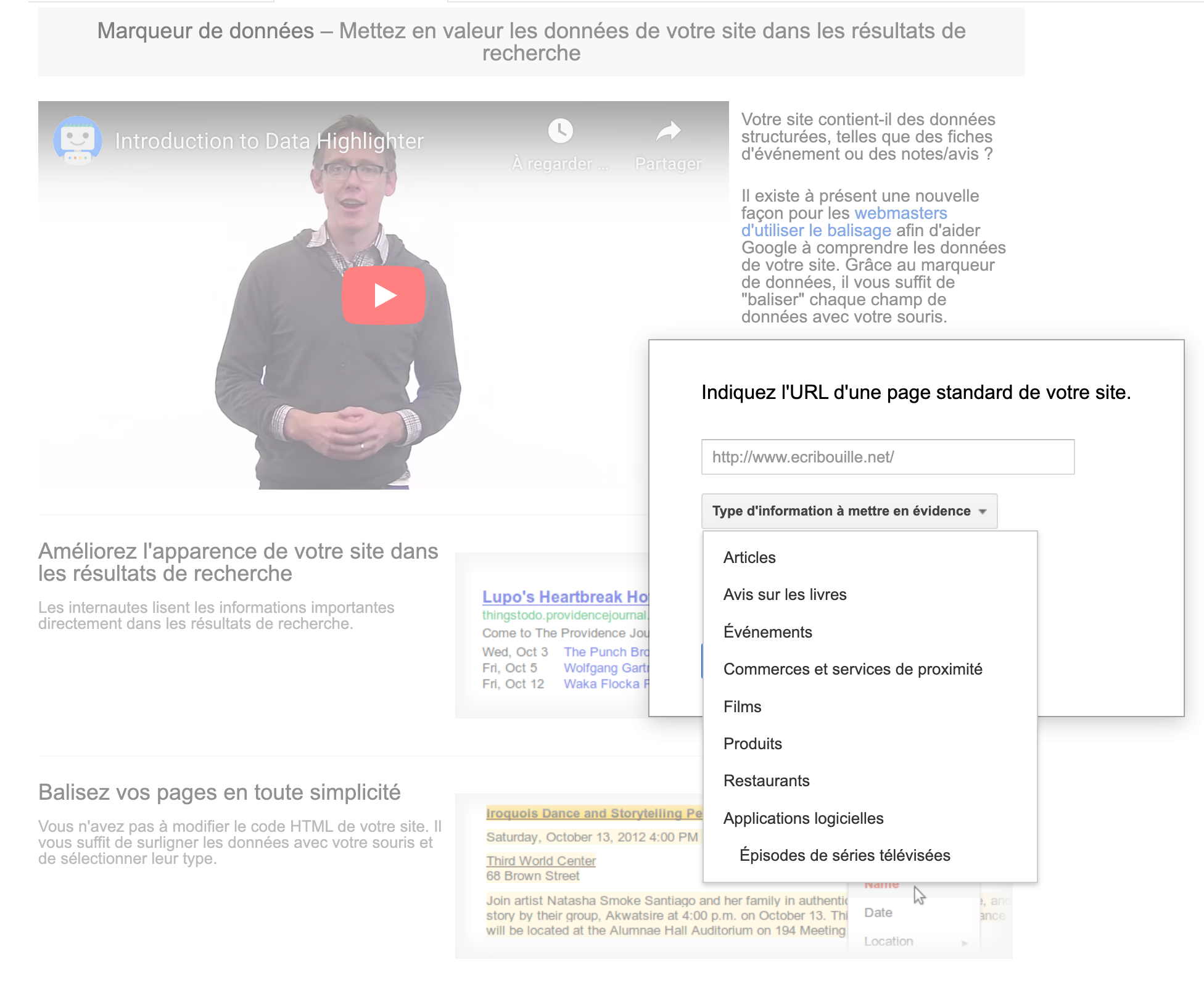The vanity of Google's enriched results
« [...] we're reducing the visibility of FAQ rich results, and limiting How-To rich results to desktop devices »
Dans son article du 8 août 2023, Google Search Central annonçait un changement d’affichage à venir dans les résultats organiques du moteur de recherche.
Les résultats enrichis de type FAQ (Frequently Asked Questions) et les How-To seront moins visibles. En ce qui concerne les FAQ, ils devraient apparaître moins fréquemment tandis que l’affichage des How-To sera réservé aux résultats desktop (ordinateur de bureau). À noter que selon les résolutions d’écran, certains navigateurs de tablettes présentent les résultats desktop pour les sites Web au design responsive. Mais qui n’a pas son site Web avec un design responsive en 2023 ?
L’annonce de Google Search Central est franche, il ne s’agit pas d’un test ou d’une hypothèse.
Sommaire
Mesurer l’influence réelle de ces nouveaux affichages sur le trafic SEO.
Comprendre le Mobile-First Indexing en 8 minutes
Ne délaissez pas vos internautes desktop.
Les FAQ dans la Google Search Console
Ce n’est pas la première fois que Google fait un retour en arrière sur ses fonctionnalités.
Devons-nous être attentifs aux annonces de Google ?
Recommandation pour les données structurées
Faut-il enlever les données structurées (microdonnées) How-To ?
Les questions FAQ et How-To, une fonctionnalité populaire
Les données structurées que l’on installe et celles que Google reconnaît.
Que cela signifie-t-il pour les stratégies de contenus en 2024 ?
Ce que Google nous promet du SGE en vidéo
Penser le contenu en tant que service à proposer.
Le contenu evergreen a encore son utilité (et ce n’est pas prêt de s’arrêter).
Mesurer l’influence réelle de ces nouveaux affichages sur le trafic SEO.
Google réalise ce que nous appelons le Mobile-First indexing. Cela signifie que les robots vont crawler (parcourir) les sites Web comme s’ils étaient des appareils mobiles et ainsi utiliser ces paramètres pour évaluer la pertinence et la performance des sites Web.
C’est la raison pour laquelle il est intéressant de prendre garde au temps de chargement de ses pages : pour le confort mais aussi pour optimiser le temps passé par le robot sur le site Web. De bons temps de chargement sont des indicateurs d’une expérience agréable pour l’utilisateur tout en favorisant le parcours du robot. N’oublions pas qu’il attribue une certaine durée seulement à chaque site, littéralement appelé « crawl budget ».
Comprendre le Mobile-First Indexing en 8 minutes
Dans l’annonce du 8 août de Google Search Central, l’affichage des résultats enrichis pour les How-To concerne spécifiquement les résultats mobiles. Ainsi, si votre trafic SEO s’avère être majoritairement issus d’appareils mobiles, un suivi des résultats des semaines à venir sera intéressant.
Dans ces situations, il faut prendre garde à l’excès d’enthousiasme qui peut nous emporter en observant les performances de nos sites !
Sur ces graphiques par exemple, vous voyez que le trafic issu du mobile est majoritaire. Cependant, cela ne signifie pas que les visites venant de smartphones sont les seules dont il faut tenir compte !
Ne délaissez pas vos internautes sur desktop !
Les FAQ dans la Google Search Console
Afin de suivre concrètement les affichages d’un site Web dans Google, consultez la Google Search Console. Dans l’onglet « Performances », quelques clics suffisent pour trier et filtrer les affichages qui vous intéressent.
Contrairement à des outils d’analyse du marché comme SEMRush, Google Search Console vous fournit une synthèse de l’activité de votre propre site Web sur le moteur de recherche.
Un outil comme SEMRush vous apporte un relevé des affichages activés en fonction de requêtes spécifiques. Aujourd’hui l’outil communique sur le fait qu’il suit 25 milliards de mots-clés, d’où son intérêt pour les études concurrentielles.
Mais les tableaux fournis ne représentent pas ce qu’il se passe réellement, puisqu’un résultat enrichi activé pour une requête inintéressante n'apporte a priori que peu de trafic SEO.
Ce n’est pas la première fois que Google fait un retour en arrière sur ses fonctionnalités.
S’il ne fallait en citer qu’un, les années 2010 ont vu l’avènement de l’affichage authorship dans les résultats de Google. L’auteur était affiché avec une petite image directement liée à son compte Google+. Cette fonctionnalité permettait d’une part de valoriser un auteur tout en augmentant d’autre part significativement les taux de clics.
Naturellement, l’œil de l’utilisateur était attiré par le visage d’un de ses homologues de l’espèce humaine : un intérêt pour la photographie, une dose de curiosité et le clic vers le site Web était joué !
Aujourd’hui même si le rel=”author” pourrait être considéré comme étant obsolète pour le SEO, Google est tout de même loin d’avoir abandonné l’idée de valoriser les auteurs. Surtout, il est très loin du fait de ne pas encourager les éditeurs de site Web à mettre en avant le fait que des personnes expertes et reconnues contribuent aux contenus en ligne. Plusieurs moyens peuvent être utilisés : pages auteurs, page à propos, manifeste en ligne, etc.
Bien que l’affichage enrichi qui était autrefois spécifiquement dédié à l’authorship n’existe plus, l’ensemble des recommandations en faveur des bonnes pratiques E-E-A-T suivent la volonté de favoriser les auteurs pertinents.
Même si les rich snippets évoluent, la définition d’un contenu que le moteur de recherche veut valoriser reste la même.
Devons-nous être attentifs aux annonces de Google ?
Après tout, pourquoi ne pas envoyer promener Google et ses annonces ? En vérité, nous aurions tendance à vous dire que « oui », faites comme vous voulez. Nous argumenterons plus tard dans cet article lorsque nous aborderons l’influence de de cette annonce pour les stratégies de contenus en 2024.
Cependant, bien que Google ne doit en aucun cas vous dicter vos stratégies pour vos projets (qui cibler, quand les cibler, comment les cibler, vos étapes de développement), assurez-vous que vous ne créez pas des freins pour votre croissance.
Selon le site Statista, Google continue de détenir plus de 80 % de parts de marché en France. Encore une fois, cela ne signifie pas qu’il faut délaisser les autres moteurs de recherche. Mais il est évident que Google et ses changements influencent le trafic organique d’un site Web. Lorsque certains sites dépendent grandement des résultats naturels, la part de trafic (et donc d’affaires potentielles) doit être surveillée.
Recommandation pour les données structurées
Comme le disait Martin Splitt (Developer Relations Search & Web ecosystem chez Google (une photo de moi avec lui)), la donnée structurée est une information invisible pour l’utilisateur. Elle n’apparaît pas directement sur la page Web mais elle est bel et bien présente dans le code source. En quelques mots, il s’agit d’utiliser une balise HTML pour signaler la nature d’une information.
Implémenter les données structurées a un intérêt pour le SEO mais aussi pour de nombreuses autres raisons. Si nous définissons « pour le SEO » comme étant le fait de se positionner sur des requêtes concurrentielles, c’est sans doute réducteur. Les utilisateurs peuvent rechercher une information de multiples façons et dans de très nombreuses situations différentes.
Mettre en place les données structurées (et les remplir) est une bonne pratique pour documenter et enrichir les contenus que l’on met en ligne : pas uniquement dans le but d’apparaître sur la 1ère page de Google, mais aussi tout simplement pour favoriser un contenu pérenne que l’on pourra facilement retrouver même des mois ou années plus tard.
Faut-il enlever les données structurées (microdonnées) How-To ?
« Ça dépend ».
Pour et Contre
| Pros |
|---|
| Retirer ses données structurées à la suite d’une communication de Google |
| Cons |
|---|
| Ne pas retirer ses données structurées à la suite d’une communication de Google. |
| Précaution si une grande proportion du trafic SEO est générée par des résultats How-To sur mobile. |
| Une information utile est retirée du site Web. |
| D’autres moteurs de recherche et d’autres façons de rechercher rendent la donnée structurée How-To utile. |
| Mobilisation d’une ressource technique supplémentaire. |
| Risque d’erreur et d’oubli. |
| Une régression est possible, est-ce une catastrophe ? |
| Instabilité du site Web et risques techniques comme à chaque changement structurel. |
Oui, les affichages enrichis dans les résultats naturels de Google sont de belles opportunités de trafic. Non, ne les enlevons pas si elles enlèvent des informations utiles au site Web.
Étant donné que l’annonce porte également directement sur la différence d’affichage entre le mobile et le desktop, rappelons la recommandations aux webmasters de fournir des données structurées identiques sur les deux versions.
« We suggest that you keep the same structured data for desktop and mobile pages. »
Les questions FAQ et How-To, une fonctionnalité populaire
Les utilisateurs sont largement habitués au fait de poser des questions et de se renseigner sur un moteur de recherche. Les requêtes vocales (donc sur un terminal mobile) sont également le plus souvent formulées en langage naturel, c’est-à-dire avec des phrases entières et bien formulées.
En conséquence, bien que ces résultats bénéficient moins d’un affichage aussi attractif dans les semaines à venir, il demeure intéressant de répondre à ces questions en créant des pages qui leur sont dédiées.
Depuis 2016, WIRED réalise des interviews directement inspirées des recherches suggérées par Google. Ces suggestions apparaissent entre autres aussi dans les PAA (People Also Asked). Elles ont aujourd’hui cumulées près de 20 millions de vues.
Les données structurées que l’on installe et celles que Google reconnaît.
Implémenter les données structurées dans le code source de ses pages est utile pour faciliter le travail aux robots et aux algorithmes. Ils peuvent ainsi identifier plus facilement les éléments que nous souhaitons valoriser dans nos contenus.
Il y a 10 ans maintenant, nous pouvions donner un coup de pouce à Google avec une fonctionnalité intégrée à Google Webmaster Tools (devenu Google Search Console). Le data highlighter était une version Wysywig (What you see is what you get) pour littéralement surligner les morceaux de sites et leur attribuer des microdonnées. D’ailleurs, l’interface pour ce faire est toujours accessible.
Cela dit, même sans action spécifique Google est capable de reconnaître certains formats.
D’une part, n’oublions pas que les robots crawlent les sites et en analysent les contenus. Les progrès de l’algorithme rendent évident que le moteur de recherche est tout à fait capable de reconnaître de quoi nous parlons dans la majeure partie des cas. C’est notamment la raison pour laquelle les entitées sont aussi intéressantes à traiter, et ce pourquoi les notions de proximité sémantique développées par Babbar.Tech doivent faire l’objet de toute notre attention.
« Entity SEO is the future of where search engines are headed with regard to choosing what content to rank and determining its meaning. Combine this with knowledge-based trust, and I believe that entity SEO will be the future of how SEO is done in the next two years. »
C’est pourquoi il est intéressant de prendre soin de varier les formats dans lesquels les textes sont rédigés. L’utilisation de tableaux, de listes à puces, de listes ordonnées ou tout simplement le bon usage des intertitres sont autant d’éléments structurels qui facilitent la lecture… pour l’utilisateur ET le robot.
Les featured snippets (position SEO juste après la barre de recherche) seront moins visibles ? Ne délaissez surtout pas tous les autres résultats enrichis !
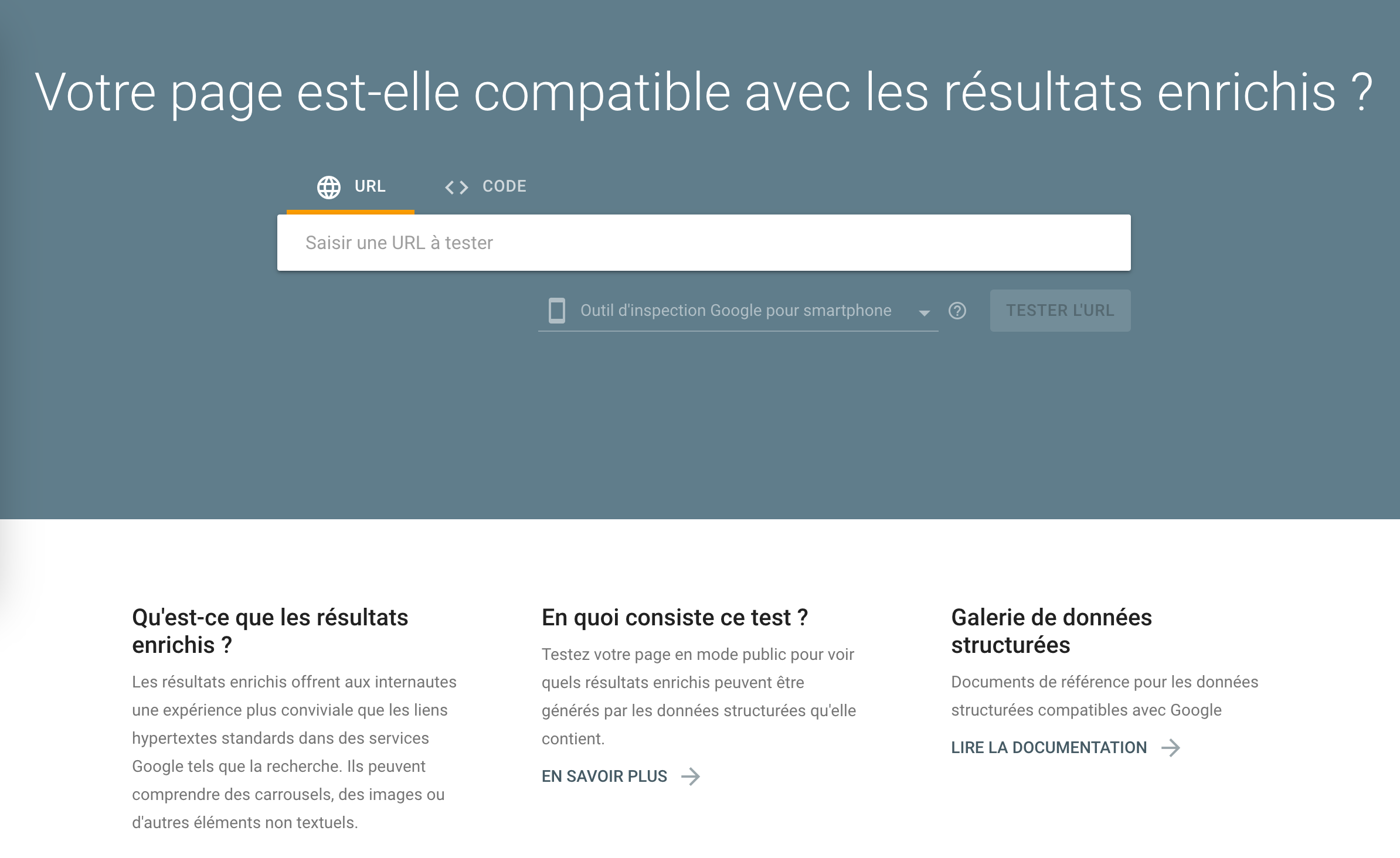
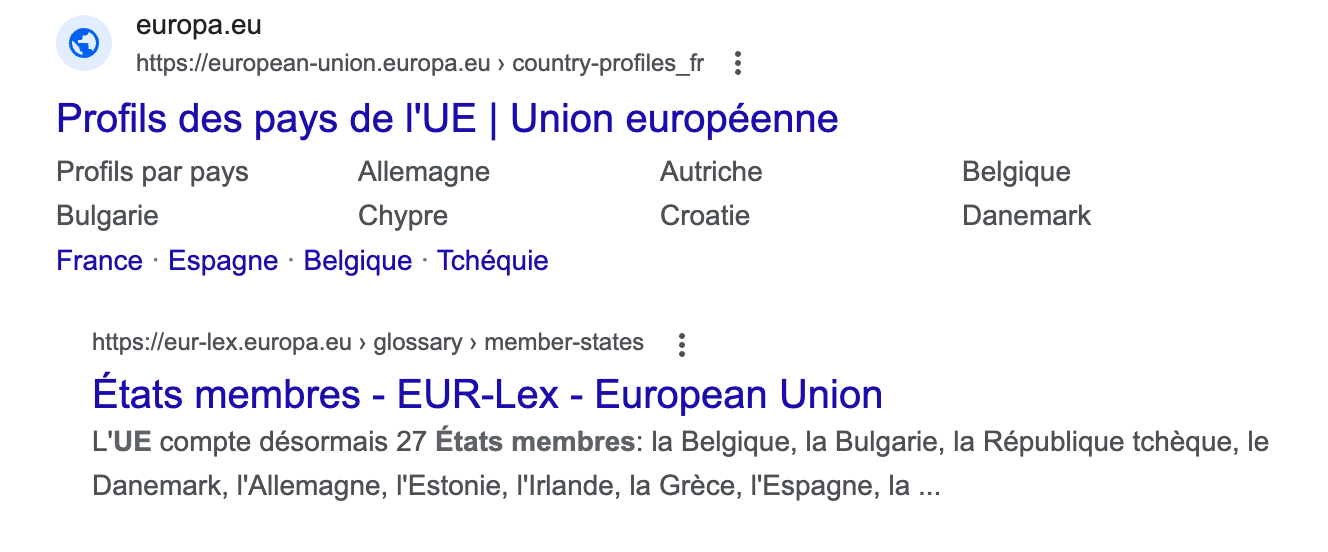
Que cela signifie-t-il pour les stratégies de contenus en 2024 ?
La fin des FAQ et des How-to est sans doute une exagération. Plusieurs professionnels de l’industrie ont également soupçonné la venue des résultats alimentés par l’intelligence artificielle comme étant une cause directe de cette décision. Pourquoi ? Car en limitant le nombre d’affichage des positions zéro (résultats enrichis en featured snippet), cela crée de l’espace pour que SGE déploie son potentiel.
SGE : Search Generative Experience
Ce que Google nous promet en vidéo :
Penser le contenu en tant que service à proposer.
Le contenu evergreen a encore son utilité (et ce n’est pas prêt de s’arrêter).
Le contenu evergreen désigne dans les grandes lignes le contenu froid qui est conçu dans le but d’éviter toute obsolescence. Les mises à jour nécessaires sont minimes et la plupart du temps prévisibles. Même si un contenu de ce type a souvent des performances de trafic moins spectaculaires qu’un autre directement lié à une actualité chaude, le contenu evergreen nous surprend souvent par sa longévité.
Plus il est pertinent, plus le contenu evergreen est susceptible de :
apporter du trafic sur du long terme,
permettre à l’utilisateur d’identifier la marque en tant que ressource pertinente,
permettre au moteur de recherche d’identifier le site en tant que ressource utile.
« Google Search’s helpful content system generates a signal used by our automated ranking systems to better ensure people see original, helpful content written by people, for people, in search results. This page explains more about how the system works, and what you can do to assess and improve your content. »
Conclusion
Une personne n’a pas nécessairement besoin de venir des dizaines de fois sur un même site Web pour se dire qu’il est pertinent. Cependant, il y a de fortes chances pour qu’il se rappelle de cette marque le jour où il aura besoin de ses services ou produits.
Les guides (How-To) et les réponses aux questions fréquentes (FAQ) ne sont pas nées devenir des affichages en featured snippets dans Google.
Ce sont des services et des formats de contenu que l’on développe sur les sites Web mais aussi de multiples façons.
Les vidéos de démonstration dans les magasins de bricolage sont des How-To et les dépliants de sensibilisation dans les cabinets médicaux sont des FAQ.
Il est absolument hors de question de ne plus penser ainsi à sa stratégie de contenu. Oui, chaque contenu et chaque page représente une opportunité de trafic. Mais même si une information ne concerne que 5 % de votre trafic, peut-être cette dernière intéresse-t-elle 60 % de vos clients ?
Rappelons-nous plus que jamais que le SEO est un canal d’acquisition magnifique pour un projet mais qu’il n’est en aucun cas le reflet de la totalité de son business plan. Même les pure players se rendent compte que l’acquisition n’est qu’une porte d’entrée et qu’il ne se substitue pas à tous les étapes suivantes d’un business comme l’accompagnement en avant-vente ou encore le service après-vente.
Ceci est l’histoire de l'œuf de la poule dans le domaine du content marketing.
Avons-nous une information à transmettre que nous voulons diffuser ?
Ou devons-nous diffuser ce que les personnes attendent de nous ?
Pour créer de l’information et attirer une première audience, il est intéressant de créer du contenu au sujet de ce que l’on attend de nous. Mais est-ce pour ce dernier que les personnes reviendront, parleront de nous, vont nous recommander ?
Créez le contenu qui correspond à votre projet : à l’information et au niveau de service que vous souhaitez transmettre.


